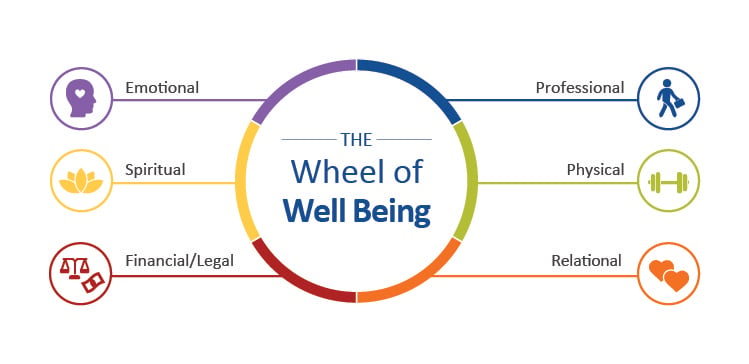Living in unprecedented and polarizing times means there is seemingly no shortage of bad news. When we come across a worrying headline, a wave of emotions can overcome us. The recent invasion of Ukraine has only further led to stress, anxiety and unease. As we deal with stressful situations and the fear of the unknown, it is important to prioritize well-being and build resilience.
The stressors that come along with international crises and conflict can eventually lead to adverse effects in emotional, mental and physical health. It is a possibility recent events could ultimately exacerbate our current behavioral health crisis. According to many studies, stress cascades to other health problems such as risk of stroke, heart attack, depression, chronic lower respiratory diseases and more.
International conflict can lead to unstable financial markets, fluctuating gas prices and inflation which places a financial burden on individuals and their families. Financial strain has impacts on other dimensions of your well-being. As outlined in the Wheel of Well-Being, struggles with Financial well-being can cascade into your Emotional, Spiritual, Legal, Professional, Physical and Relational dimensions. It important to realize how these are intertwined and proactively look at ways to improve well-being in each area.
 Leadership in a Time of Crisis
Leadership in a Time of Crisis
Professional well-being, another section of the Wheel of Well-Being, can also take a “hit” due to strain on professional relationships, needing time away to deal with personal issues, difference of opinion, etc. Organization’s leadership serves as a resource and are often the front line of support for employees looking for help. In difficult times, leadership can be valuable for building resiliency both collectively and individually. Part of VITAL WorkLife’s proven process is to partner with organizations’ leadership to help them effectively support and engage employees to prioritize well-being and build resiliency.
Having a deep organizational understanding of how continual stress and unease can affect their employees’ well-being is crucial. Leveraging preventative solutions within the organization such as peer coaching, counseling, and strategies to support everyone can decrease stress and burnout among everyone in the organization. Investing in ground-up solutions to cultivate a culture of well-being can mitigate the negative effects of global conflict on employee well-being. VITAL WorkLife provides several resources for your organization’s leadership such as:
- Organizational Consulting
- Investing in Physician Well Being: The Smart Business Choice
- 5 Ways to Support Employees and Managers Amid Political and Social Unrest
- Dedicated Account Team to work with Organizational Leadership
Resiliency
For Individuals, building resiliency is important now more than ever. VITAL WorkLife encourages you to build resiliency during stressful times, starting with assessing your own current Wheel of Well-Being. This can be achieved through the five pillars of resiliency:
- Self-awareness: Having conscious knowledge of your own personality. It allows us to understand how we react.
- Mindfulness: The ability to be fully present, aware of what we are, what we are doing, and not overly reactive or overwhelmed by what is happening around us.
- Self-care: Taking action to maintain or improve our health.
- Healthy relationships: surrounding ourselves with supportive people who we care for.
- Purpose: Helps us shape our attitude toward others and our experiences. Through purpose we can recognize that we belong or serve something bigger than ourselves.
After your self-assessment, you may realize that one or more of your areas of the Wheel require some attention and support – it might be discussions with a financial consultant, time with a counselor to address stress and anxiety, a search on our website for short workouts to boost your mood. It’s time to reach out to VITAL WorkLife by phone or email to start your journey to improved well-being and resilience.
For more information and resources:
- International Crisis Support from VITAL WorkLife
- UNICEF
- United Nations High Commissioner for Refugees
- Mercy Corps
- International Rescue Committee
We Can Help
Members can contact us by:
- Employee Assistance Program: Access your resources by calling 800.383.1908 or through your VITAL WorkLife App
- Physician/Provider/Clinician Well Being Resources: Access your resources by calling 877.731.3949 or connect through your VITAL WorkLife App


